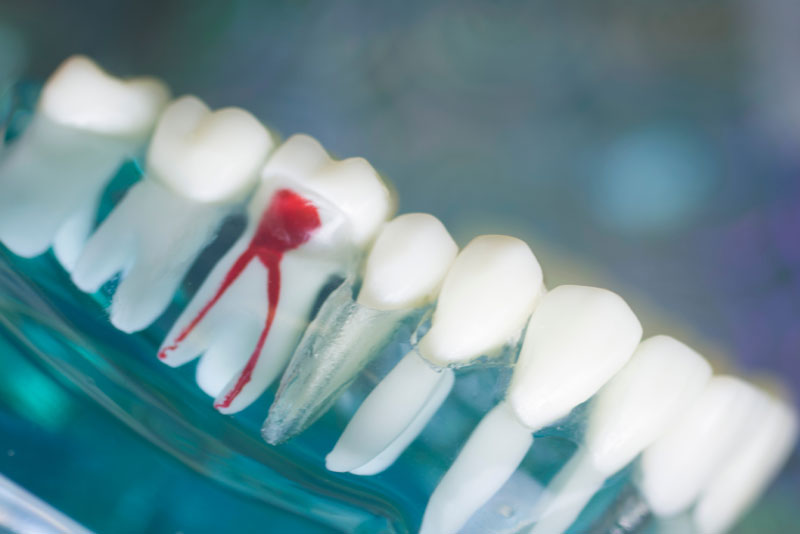When you see any dentist in Ajax for a tooth infection, you can rest assured they will try their hardest to save the tooth. Often, natural teeth can be saved with a root canal treatment that removes the infection, preserving the natural tooth and allowing it to be restored. However, sometimes, a root canal can fail when the infection returns. While one option is to have another root canal treatment in Whitby, this isn’t always the best solution. It may not be certain that the second treatment will work successfully or provide a long-lasting result. Also, retreating a tooth can be expensive and time-consuming. Sometimes, there may be no other option than to remove the failing tooth to help clear up the infection.
Why Would a Root Canal Fail?
Usually, a root canal treatment will last many years, but even though the tooth is non-vital or essentially dead inside, it is still vulnerable to tooth decay. A root canal can fail if a tiny amount of bacteria remains inside the tooth. Although the root-treated tooth is protected with a dental crown in Pickering, the crown will not last forever, and there is a possibility it could begin to leak, letting in harmful bacteria as the crown ages. Removing the tooth nerve, the living part of the tooth, during a root canal treatment can weaken it, making it more brittle and more likely to break over time.
If you have a failing root canal, our dentist in Newcastle can assess it carefully, determining if another root canal treatment is the preferable option. If this treatment is likely to have a high degree of success, we will almost certainly recommend it. However, if re-treating the tooth has a less reliable outcome, we can discuss all options with you. While you may prefer to preserve your natural tooth, another solution is to replace it with a dental implant in Oshawa.
Why Have a Dental Implant?
Removing a failing tooth in Clarington and replacing it with a dental implant can provide a long-lasting solution that could prove more cost-effective over time. A dental implant replaces a failing tooth artificially, closely replicating the function and appearance of a natural tooth. The implant in Brooklin consists of a small screw or post inserted into your jawbone, where it replicates a natural tooth root. An abutment is attached to the post and protrudes above the gum line. The abutment supports the replacement tooth, which is an implant crown.
What are the Advantages of Choosing a Dental Implant?
When you have natural teeth, biting and chewing ensures the bone around your tooth roots is stimulated, so old bone cells are continually renewed. Removing a tooth eliminates this stimulation, so consequently, your jawbone begins to resorb.
One of the most significant advantages of choosing a dental implant in Courtice is the positive impact on your oral health. A dental implant is the only restoration that preserves and protects your jawbone after removing a natural tooth root. It restores stimulation to the bone around it, ensuring it doesn’t resorb. A dental implant tooth in Pickering has a biting strength similar to a natural tooth, so you can enjoy the foods you love once more. You will also be able to speak clearly, and your smile will look natural and beautiful.
Most people can have a dental implant, but you will need a proper consultation to discover more about this treatment, the time required, and the costs involved. Once you have an implant tooth in Brooklin, it is essential to care for it properly, coming to see us regularly for checkups and hygiene appointments, and cleaning around i


